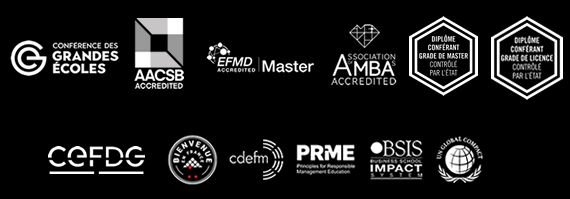In a column released by European Business Review in January 2020, Dr. Fernanda Arreola, Professor of Entrepreneurship & Innovation at EMLV, École de Management Léonard de Vinci, offered an extensive outlook on the role of hospitality manager in companies’ organizational structure. This new function that has gained momentum before the outbreak will be all the more important after the crisis, as many employees will have to deal with post-pandemic stress and anxiety.
New demands are emerging in the service sector that require people-oriented managers who also understand the technical aspects of operating large facilities.
Our research shows a need for new “transversal” professionals capable of merging hard technical abilities with soft relational ones.
The Rise of the Hospitality Manager
A prime example is a new generation of Hospitality Managers that fulfill the hospitality needs of employees in ways that facilitate organisational happiness and engagement.
Executives are increasingly aware of the value that attending to the humanistic needs of an office can bring to the organisation. Research shows, for instance, that providing the basic elements of ergonomy, such as good lighting, workplace ventilation and green spaces, can result in greater work satisfaction with an eventual positive impact on workplace performance.
Other companies are employing perquisites and assistance services to attract talented employees and encourage deeper engagement.
Facebook or Alphabet (Google), for example, have rendered their facilities into “campuses” with spaces meant to generate collaboration and informal exchanges while reducing stress levels. The companies further facilitate many of the personal life activities of employees, such as dry cleaning, child care or even making dinner reservations or arranging for flower delivery.
The goal of these services is to free employees of mundane concerns so that they can attend more fully to their professional work.
While the value of these services may be more obvious to a generation of younger firms, the reality is that gaining control over the management of an office space, understanding employee needs, creating new spaces for innovation and assuring performance, is not an easy task.
This has led some employers to rely on outside service firms as specialist providers.7 Companies normally externalise service-activities that are considered to be outside of the “productive” scope of actions.
With this logic, a large number of firms have chosen to abdicate control over an activity that until recently was not considered a performance tool; the management of the workplace.
However, when companies outsource an internal service there is a loss of information about the status of the company’s workforce.
The firm is no longer aware of the problems their employees regularly face and thus have limited information about the value that such service provides. Furthermore, the possibilities for internal discovery and innovation are lost when control is ceded to an outside provider.
To address this concern, a growing number of companies are establishing a new function to regain links with the elements that increase performance and agility within an office that generally goes by the title of Hospitality Manager.
Please click the link to read the rest of the article.





















